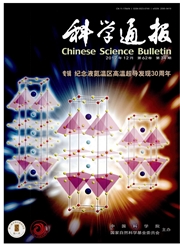

 中文摘要:
中文摘要:
人类活动引起的大气CO2浓度增加正在加剧全球气候变化,因而全球碳循环和碳汇研究广受关注,它不仅是科学问题,也是关乎经济和社会发展的问题.碳汇研究涉及大气、陆地、海洋等各圈层.陆地向海洋输出的碳通量,与陆-气界面、海-气界面相当;但大部分陆地上形成的有机碳,在输入河流和近海时发生了改变,不仅无法形成碳汇,反而引发河口碳源效应.因此,系统开展陆海统筹协同研究,对于全面认识碳汇形成过程与调控机制十分必要.新近提出的"微型生物碳泵(microbial carbon pump,MCP)"理论为开展陆海统筹研发碳汇奠定了基础,可望以MCP为突破口,通过学科交叉研究和"产、学、研、政、用"结合,实现协同创新,为发展低碳经济提供科技支撑.
 英文摘要:
英文摘要:
The recent global climate change is presumably linked to increased atmospheric CO2 caused by anthropogenic activities. Therefore,the research on global carbon cycling attracts tremendous attention not only because it is related to science but also related to economy and society. This kind of research involves interactions among atmosphere,geosphere and the ocean. The carbon flux exported from land to ocean is equivalent to the land-sea interface and air-sea interface. However the major organic carbon derived from land is modified sharply when they are exported from rivers to coastal oceans,which convert the "carbon sink" into "carbon source" in the estuary. In such a scenario,the carbon cycling research between land and sea is therefore critically important in order to understand the processes and mechanisms behind it. The framework of microbial carbon pump(MCP) sheds light on the source and fate of recalcitrant dissolved organic carbon,which also is applicable to the soil system. Meanwhile,a new scientific understanding is that "carbon fixation is not equal to carbon storage" and "carbon pool is not equal to carbon sink",which could provide insight into strategies to increase carbon sink. This scientific understanding provides practical and consistent foundation for the research and potential ecology management on carbon cycling between land and sea. Future endeavor in deciphering the mechanisms of carbon sink requires an interdisciplinary approach and the cooperation of industry,researchers,policy maker and customer.
 同期刊论文项目
同期刊论文项目
 同项目期刊论文
同项目期刊论文
 期刊信息
期刊信息
